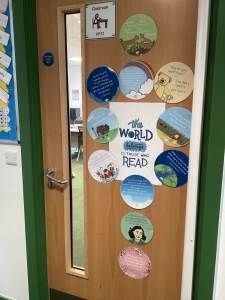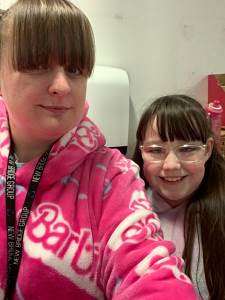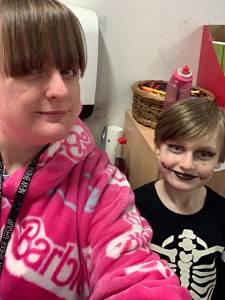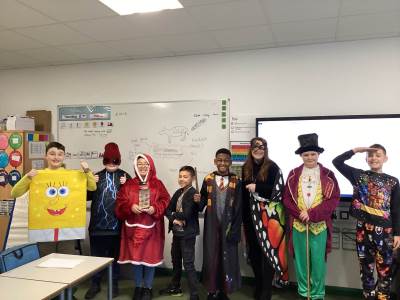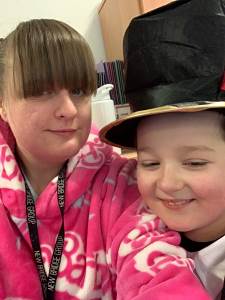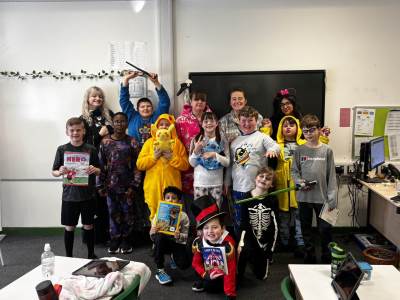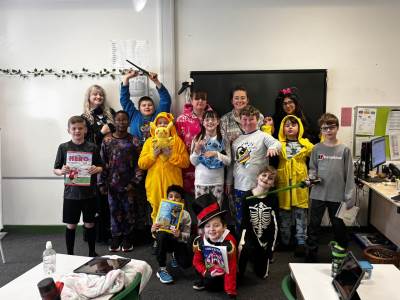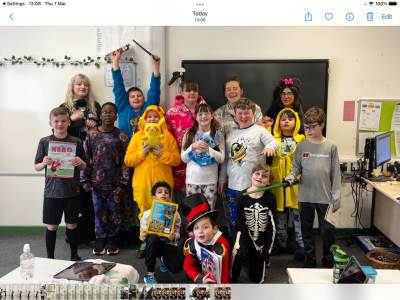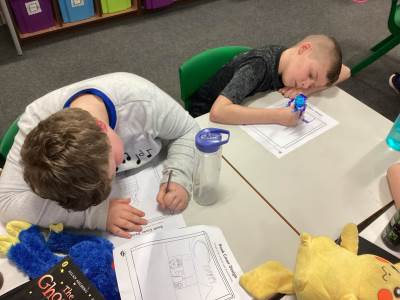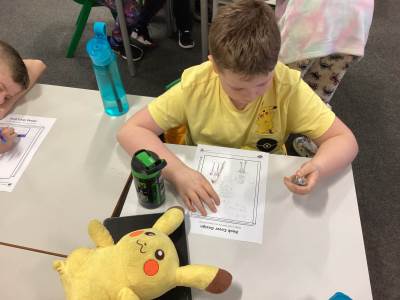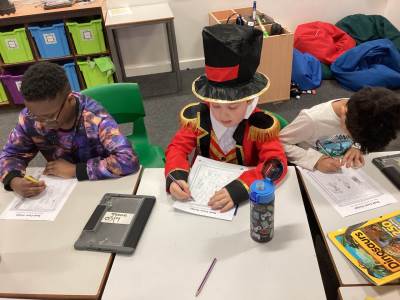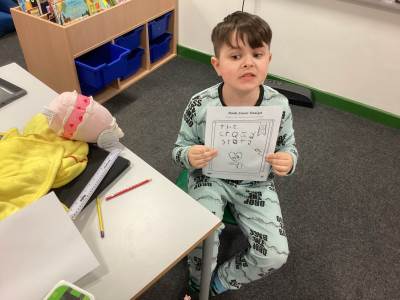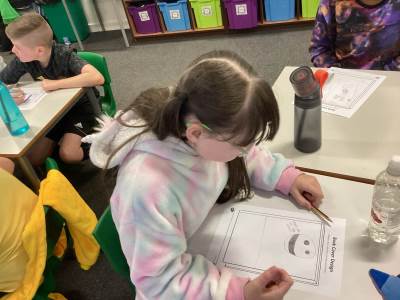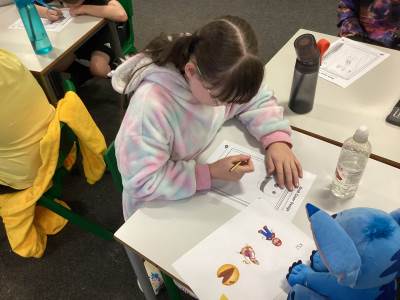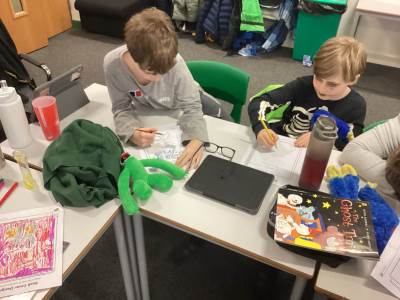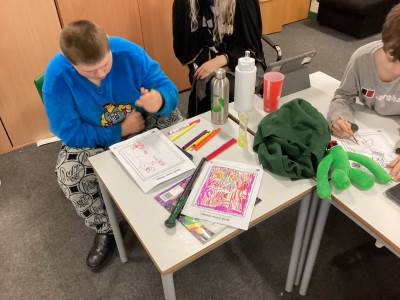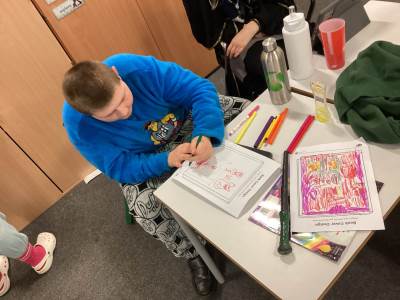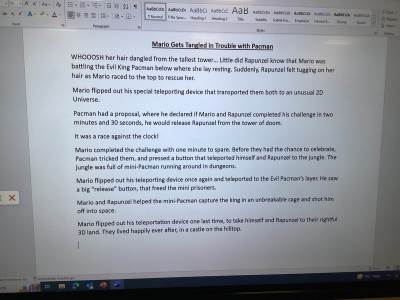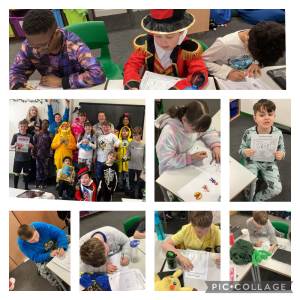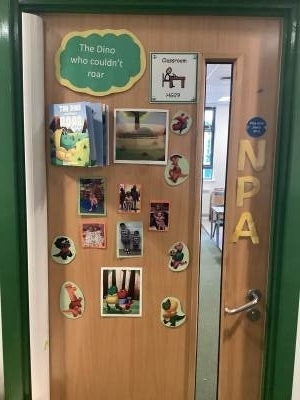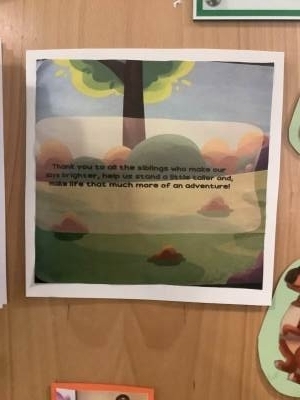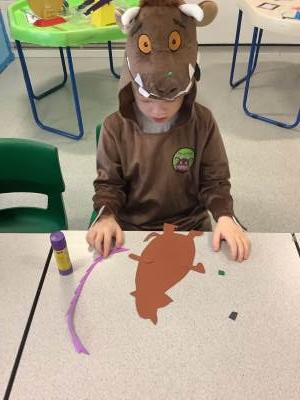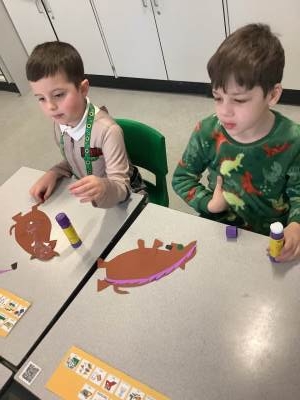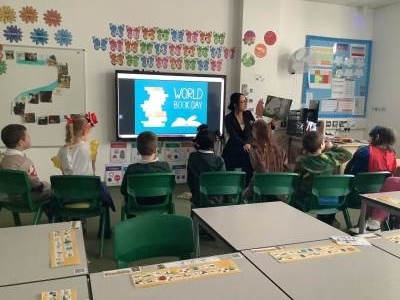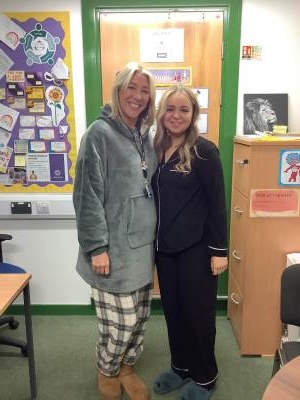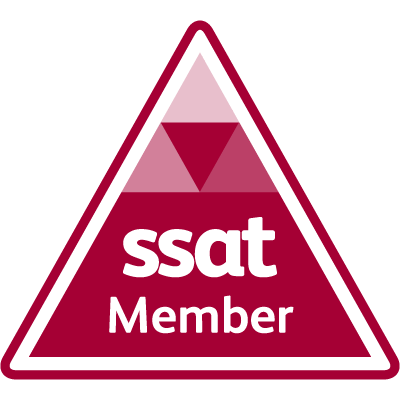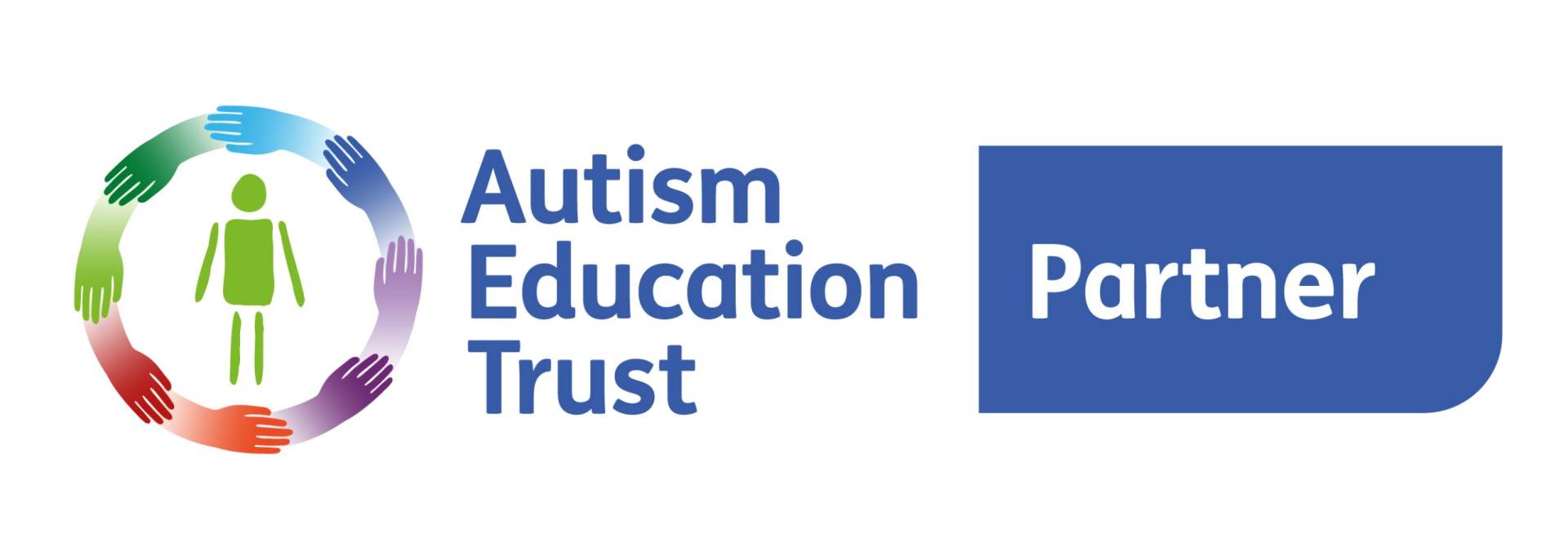Secondary English

Reading is to the mind what exercise is to the body.
Joseph Addison
At Hollinwood Academy, we want all of our children and young people to achieve success, whatever their starting points and however small the steps.
The study of English is the foundation for successful learning across the curriculum, as children and young people develop communication skills which help them understand the world around them through a variety of activities designed to develop their reading, writing and speaking and listening skills.
Through an innovative, robust and flexible curriculum, we want to nurture all of our children and young people and instil in them a confidence in their ability to achieve, whilst fostering a love of learning, a sense of pride in their work and an eagerness to always try their very best.
Reading – Throughout the secondary stage, we foster a love of reading by choosing challenging and inspiring texts, from a wide variety of genres. Everything from an introduction to Shakespeare, autobiographies, plays, poetry and non fiction texts – all are featured from Year 7 to Year 11.
Writing – We adapt our teaching to the needs of the individual, which includes ensuring that every child and young person has access to any necessary resources and support. This allows all of our children and young people the freedom to express themselves in their writing. Technology plays a significant role in making this happen.
Speaking & Listening– At Hollinwood Academy, we want all of our children and young people to find their voice and to ‘be heard’. Regular speaking & listening tasks, embedded within our English curriculum, allow for the development of these skills within an encouraging and accessible environment.
English Lessons at Hollinwood Academy
Our English lessons at Hollinwood Academy are delivered daily, with a focus on tailoring the teaching to meet the individual needs of our children and young people. Our highly skilled staff, who possess a wealth of experience and knowledge, utilise technology purposefully to support and enhance the learning process. To aid in the development of English skills, we use a variety of schemes of learning. Additionally, we provide targeted support lessons to support our learners' specific needs in English.
Teaching and learning at Hollinwood Academy is rooted in accurate assessment and a deep understanding of each individual learner's requirements. Our schemes of work are regularly adapted to cater to these needs, ensuring that we are constantly meeting the evolving needs of our children and young people. Our lessons are well-paced, offering ample opportunities for independent and shared activities. We employ various strategies and styles, including multi-sensory and kinaesthetic approaches, to engage our children and young people effectively.
Reading and Comprehension
Hollinwood Academy’s intent to reading is designed to cultivate a love for literature, advance language and communication proficiency, and foster a comprehensive understanding of texts, thereby enhancing the overall educational experience for our children and young people.
At the heart of our reading intent is the commitment to providing a personalised and inclusive learning environment where every child and young person, can access high-quality reading experiences. Our aim is to instil a passion for reading, develop crucial comprehension and communication skills, and nurture independence and confidence in our children and young peoples' reading abilities.
Our overarching aim is to cultivate effective communicators who can navigate society and express themselves and understand others in a manner best suited to their individual needs, whether verbal, written, or both. We endeavour to provide our children and young people with the foundational skills necessary to pursue further studies, secure employment, or engage in volunteer placements relevant to their individual abilities beyond compulsory schooling.
We place great importance on fostering a love of reading in children and young people. To achieve this, we provide a range of strategies and resources designed to engage and support learners at different stages of their reading journey.
Phonics and English lessons are delivered using the Fresh start program throughout the secondary stage. This comprehensive program not only focuses on teaching phonics but also provides opportunities to develop reading, comprehension, grammar, and writing skills. By adopting this approach, we ensure a solid foundation in literacy for all our children and young people.
We also recognise the importance of early identification and support for children and young people experiencing speech and language development barriers. WellComm is a valuable tool used to assess and identify areas of concern in language, communication, and interaction. This enables us to provide targeted interventions at an early stage, ensuring that children and young people receive the support they need to thrive in their education journey. Moreover, we implement a structured approach to personalised teaching and learning through the use of targeted interventions from The Big Book of Ideas. This resource enables us to tailor our teaching to meet the unique needs of individual learners, enhancing their progress and achievement.
Lastly, we embrace
- Bedrock learning: We implement Bedrock Learning, a web-based platform, to enhance children’s and young peoples reading and comprehension skills. This program exposes learners to a wide range of words, reinforcing their understanding through engaging activities.
- Guided Reading: Our teaching methodology includes regular guided reading sessions, where children and young people have the opportunity to read and discuss a variety of texts in small groups. This approach fosters comprehension, language acquisition, and critical thinking skills.
Additionally, our school library plays a pivotal role in promoting a reading culture. We encourage children and young people to explore different genres and develop a love for reading. By creating these opportunities and utilising effective resources, we aim to cultivate competent and enthusiastic readers within our formal classroom environment.
Through these varied strategies and resources, we strive to create an inclusive and vibrant reading curriculum that equips our children and young people with the necessary skills and enthusiasm to become confident and proficient readers.
Writing
In secondary English lessons, the focus on writing is paramount to enhance young peoples' literacy skills. The National Curriculum in England provides a framework for teaching writing, enabling young people to develop their understanding and application of various writing techniques. Through a range of stimulating tasks and guided practice, pupils are encouraged to explore different writing genres, experiment with language features, and refine their grammatical accuracy. Moreover, teachers foster critical thinking, creativity, and effective communication, enabling young people to become proficient and proficient writers in the English language.
At secondary, we are starting to use the Talk for Writing approach to enable young people to read and write independently for a variety of audiences and purposes within different subjects. A key feature is that young people internalise the language structures needed to write through ‘talking the text’, as well as close reading. The approach moves from dependence towards independence, with the teacher using shared and guided teaching to develop the ability in young people to write creatively and powerfully.
Talk for Writing, was developed by Pie Corbett and is powerful aid to learning across the curriculum as it is based on the principles of how people learn. The movement from imitation to innovation to independent application can be adapted to suit the needs of learners of any stage.
Intervention Groups
For children and young people with ASD, all areas of literacy can create significant barriers to learning. Intervention groups at Hollinwood Academy focus on developing skills through structured learning programmes.
Examples of one-to-one and small group intervention groups include:
- Toe by Toe
- Fresh Start
- Wellcomm
Schemes of Work
Hollinwood Academy takes pride in nurturing the English skills of all learners through our bespoke English schemes of work. These carefully crafted schemes enable children and young people to progress and achieve success in English.
Our lessons are meticulously structured and repetitive, designed to build upon our learners' phonetical knowledge, enhance their vocabulary, and deepen their understanding of grammar. By employing a systematic approach, we ensure a solid foundation for language development.
At Hollinwood, we adhere to Medium Term and Long Term plans, providing a comprehensive roadmap for our English curriculum. For a detailed overview of our plans, please see below.
With our tailored English schemes of work, the team at Hollinwood Academy promotes a holistic and inclusive learning experience, enabling all learners to thrive in their English education.
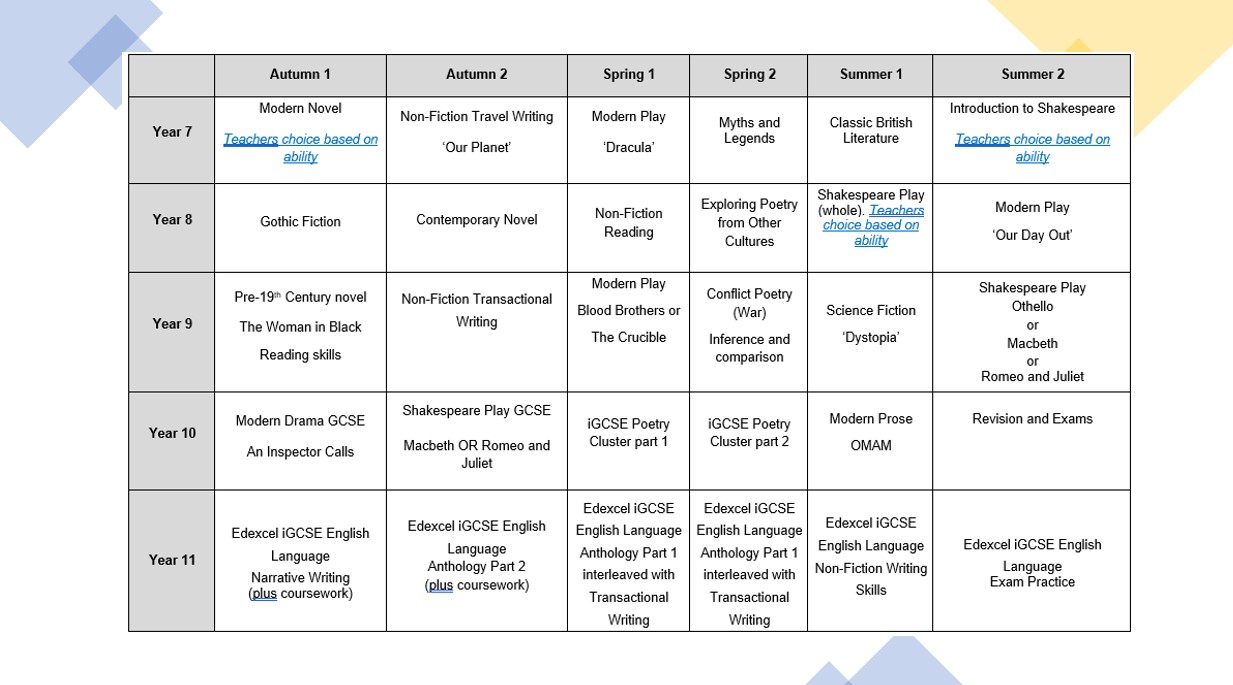
Curriculum Adaptations and Pedagogy
The curriculum adaptations and pedagogy at Hollinwood Academy is centered around meeting the unique needs and abilities of every learner, ensuring equal opportunities for academic, personal, and social development. The primary goals include:
1. Inclusivity: Adapt the curriculum to ensure that all learners have access to quality education, regardless of their individual needs.
2. Adaptive Teaching: Provide personalised learning experiences that cater to the diverse abilities, interests, and learning styles of the children and young people.
3. Progression: Foster a holistic and sequential approach to learning, allowing children and young people to build on their prior knowledge, skills, and understanding from their identified starting points.
4. Empowerment: Develop independent learners who are equipped with the skills, resilience, and self-confidence required to succeed academically and, in their future lives.
Curriculum Adaptations and Pedagogy
Assessment
At Hollinwood Academy, we employ a comprehensive approach to assessing every child and young person’s progress in English. Our assessments are designed to align with the 2014 National Curriculum in England. All children and young people's attainment is tracked and monitored through our whole school formative assessment platform Evidence for Learning. Staff are able to evidence the steps the children and young people have made in spoken language, reading and writing. By utilising these assessments, we ensure that our teaching remains closely aligned with the national curriculum, enabling us to identify areas where additional support or challenge is required.
To provide individualised support, each child and young person has bespoke and personalised English progress targets, which we track closely. We believe in fostering a strong partnership with parents, and hence, share these targets with them on a termly basis via Arbor, our digital communication platform.
By adopting this rigorous and tailored approach to English assessments, we strive to ensure that all our children and young people in formal develop a solid foundation in English and achieve their full potential.
Qualifications
Hollinwood Academy offers young people the opportunity to gain accreditations in English Language iGCSE and English Literature iGCSE, both of which are provided by Edexcel. These qualifications encompass coursework as well as one external examination.
Additionally, we provide the chance for our young people to achieve an accreditation in English Functional Skills. This particular qualification is offered in collaboration with Edexcel as well. The assessment for English Functional Skills evaluates young peoples' abilities in speaking and listening, writing, and reading.
At Hollinwood Academy, we believe in equipping our young people with comprehensive skills in English, enabling them to develop their language proficiency and literature analysis. The aforementioned qualifications provide a solid foundation for their future academic and professional endeavors.
For more information on the English iGCSE: Edexcel International GCSE English Language A | Pearson qualifications
For more information on the English Functional Skills: Functional Skills | Edexcel Functional Skills | Pearson qualifications
Technology
We firmly believe in the power of technology to enhance learning, and we have made it an integral part of our English curriculum. At the secondary stage, we embrace the use of iPads and other technological tools, enabling all children and young people to engage actively with their learning. By utilising these resources, we aim to remove barriers and make English accessible for every child and young person. Technology has transformed areas of the curriculum that have traditionally been difficult to engage children and young people in. It allows children and young people to draft, edit and produce visually appealing written pieces. Moreover, technology eliminates barriers imposed by spelling and handwriting, allowing children and young people to create work that truly demonstrates their abilities. Reading also becomes more personalised and appealing through the use of appropriate technology.
- Bedrock Learning https://bedrocklearning.org/
- Fresh Start Read Write Inc. Fresh Start - Ruth Miskin Literacy
- Spellzone Spellzone - the online English spelling resource
- Spelling Shed https://www.spellingshed.com/en-gb/
- Seneca Learning Free Homework & Revision for A Level, GCSE, KS3 & KS2 (senecalearning.com)
- BKSB Login - bksbLIVE (bksblive2.co.uk)
- BBC Bitesize KS3 English - BBC Bitesize
Celebrations and the wider curriculum
School Newspaper Autumn 2024
newsletter first edition 002 .pdf
School Newspaper Spring 2024
National Story Week
Children and young people from Hollinwood Academy enthusiastically participated in the National Story Week, a highly anticipated event that celebrates storytelling and encourages creativity. During this week, children and young people embraced their writing strengths and demonstrated their incredible abilities through various mediums.
World Book Day 2024





